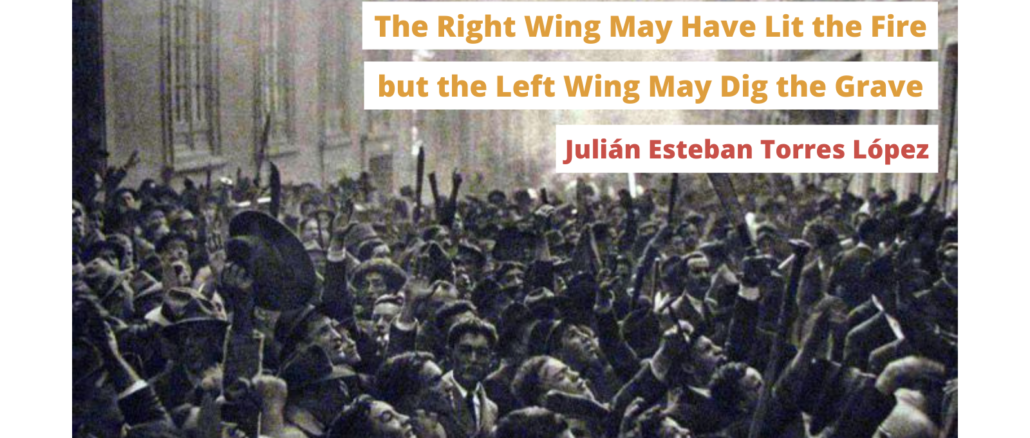
In the US, we’ve been radicalized to assume ourselves as great, at the detriment of ourselves, our country, and the world. Our collective arrogance, self-absorption, and superiority complex will be our downfall if we do not course-correct immediately. A turbulent future is here and on the horizon. The intensity of that turbulence will depend on how we prepare and act today.
In my previous life, some years before founding The Nasiona, I was an armed conflict resolution theorist and violentologist (one who studies the phenomenon of violence). My homeland of Colombia is the only country in the world where the profession of “violentology” exists. I stepped away from this field for many reasons, but there were some specific events that caused me so much alarm that I decided it was not worth the risk to myself and my family to remain.
There’ve been instances where I’ve been followed and chased on the streets of Colombia after publishing op-ed columns attacking the then-Uribe administration, and members of my family have been taken hostage at gunpoint (gagged and tied up) by extreme right-wing paramilitaries after dozens of them surrounded their home. The armed right-wing militias searched the house for any evidence of left-wing sympathies and support. Fortunately, my family was released hours later when these extremists found nothing to incriminate them. My family got lucky because the evidence they searched for was there, the paramilitaries just missed it. Those are just two consequential reasons among many.
I preface this editorial with this background information about myself because it was this foundation and lived experience that partly led me to create The Nasiona in the first place, and because I have been noticing too many patterns in the United States for decades that give me alarm regarding the 2021 US insurrection, along with events leading up to it and our current response.
I could write another book on this topic alone, but all I want to say today is that it doesn’t take many people to destabilize a country or to have it flirt with becoming a potential failed state. Sometimes all you need is fewer than a thousand people, or a hundred, to overtake a government and install a new one. Look at Cuba’s Castro revolution, for example. Or, look at Colombia. The right-wing paramilitaries never numbered more than 30,000+ (high estimate) and the left-wing guerrillas (Revolutionary Armed Forces of Colombia, FARC) didn’t number more than around 10,000. Yet, both of these groups were enough to destabilize the second oldest democracy in our hemisphere (Colombia) for over half a century. The situation got so out of control in the early years of the armed conflict decade, that historians simply named it The Violence (roughly around 1948-1958). La Violencia erupted after Jorge Eliécer Gaitán was assassinated on the streets of the Colombian capital. For those unfamiliar with the South American country’s history, Gaitán was a populist Liberal Party leader in Colombia who at the time of his assassination was a presidential candidate fighting for workers’ rights and critical of his government for favoring US interests over those of Colombians’. He was on route to become the first democratically elected socialist president in world history, 22 years before Salvador Allende was to take this title in Chile. The assassination of Gaitán was a clear stolen election, unlike what we are witnessing in the US today.
The feature photograph of this editorial is of an angry mob reacting to Gaitán’s assassination, which occurred during lunch time on the 10th of April in 1948. What erupted on the streets of Bogotá is referred to as El Bogotázo: the greatest urban riot in the history of Latin America, which led to a 10-year internal, bloody strife (La Violencia) where roughly 300,000 Colombian citizens were killed throughout the country. Liberals killed Conservatives. Conservatives killed Liberals. The enemy lines were clear, but how to end the violence was not. The result of this violent period gave rise to the armed conflict Colombia continues to experience through the 21st century. The guerrilla movement didn’t come until a decade and a half after the assassination of Jorge Eliécer Gaitán as a response to the military suppression of those not in line with the traditional elite political parties. Drugs didn’t enter the picture until the 1970s.
The circumstances of La Violencia led to two unusual cases in Latin American political history. The first was the 1953 coup d’état backed by both Liberals and Conservatives. La Violencia left the country so exhausted that the main political parties decided a dictator, in the form of General Gustavo Rojas Pinilla, was the only way to secure peace and stability. The second came in 1957 and 1958 when the country formed a military junta as a transition into a deal between the Liberals and Conservatives to share political control through an agreement known as the Frente Nacional (National Front). The Liberals and Conservatives alternated the presidency every four years, and the Congress was balanced by one half Liberals and the other half Conservative representatives. This was, in theory, to appease the fires of resentment and balance power. However, this agreement between two heads of the ruling class led to suppression of any other party that was not aligned to this two-party system, thereby excluding from politics the very real concerns and grievances of a large majority of the population. The elites feared losing their own traditional power, especially since La Violencia helped solidify class consciousness in a significant majority of citizens. The US aided in this suppression in similar ways both US Republicans and US Democrats have funded, trained, and supported dictators and right-wing coups and toppled the will of the people all over the world.
All of this is to say that this is not the time to simply rely on faith in democracy. It is time to have a concrete plan of action for the worst possible outcome. If you hate Trump and his self-absorbed actions and words and you believe the Right has been radicalized, then you should also take a look at how on the world stage the left wing of the US also sounds just as radicalized: “We’re number one!” “We’re the greatest!” “Only we can solve the world’s problems.” “We’re the world’s saviors and people should be grateful to us.” “We’ve made the world great.” “This isn’t who we are.” “We’re not a third-world country.” “We’re not a banana republic.” “We’re better than this!” And on, and on, and on. The Left and definitely the Right have been radicalized to think extremely highly of themselves on the world stage. We’ve accepted the propaganda, even when our actions in the world contradict our ignorant and empty beliefs in our greatness.
The propaganda that led to the January 6th insurrection is akin to the ways the US has radicalized its citizenry to support interventions and insurrections and coups all over the world. In a way, the Trump administration is the manifestation of what the US actually IS in the world if we judge the US based on its actions, not just its propaganda. Yes, the radical right wing of the US may have lit the match domestically with the insurrection, but it could very well be the left wing’s superiority complex on the world stage that may dig the US’s grave. We cannot be effectively prepared for the coming turbulence if we cannot even imagine it because we think it could never happen to us. You cannot effectively prepare for a boogie man you don’t think exists. Without a plan rooted in reality, we’re simply relying on luck to save us.
We are not better than this. We are this. We were never great. We must accept this as our first premise before we can approximate any kind of greatness. Not doing so is a whitewashing of history (like indigenous genocide, like the kidnapping and hostage taking of Africans, like sterilization campaigns of “undesirables,” like the US eugenics movement Nazi Germany replicated, like the race apartheid that became a template for South Africa’s, like the white supremacy that continues to this day, etc.). Not accepting this as a first premise is a self-decapitation, a faulty foundation upon which to rebuild ourselves anew. If we don’t recognize this first premise, we will be complicit in our own downfall because we will not be properly prepared to handle what’s to come. Our ego may be too fragile to accept we are not great, and we will stand in our own way to safeguard the democracy we think we have.
My fear is that Trump doesn’t have much to lose, at this point. And when you are cornered and don’t have an out, you go out with a bang, all guns blazing. The thing is, his Trump card is his followers. One of the scariest things is that Trump has what all politicians (from the entire Left to Right spectrum) desire from their constituents: their hearts and minds. The love and will of his people is his fortress. Joe Biden does not come close, and neither does any single other politician right now from both sides of the aisle, nor all of these politicians combined. The sad reality is that his followers have been duped. But false beliefs can have very real consequences. And the sheer number of his followers and the significant percentage of the country that believes the election was stolen from them and their zealot belief that they are patriots acting to save democracy should be alarming to EVERYONE, at home and abroad. Stores around the country have had to ration ammunition to one purchase per person because too many Trump supporters over the last year have been buying them out. He’s got tens of millions of people supporting him and enough people willing to die not just for him but for US democracy, even if they are misguided. These people are not only willing to die for their beliefs, they are willing to KILL for their beliefs while feeling morally and politically justified in doing so. And there is almost nothing that will change their minds. They interpret every action taken against Trump as more evidence to support their world views (conspiracy theories).
These are the beginning notes of a third world war. Do you hear them?
Again, it doesn’t take more than a hundred people to overthrow a government, even one installed and backed by the US, like Cuba was before Castro. It doesn’t take more than a couple handfuls of thousands of people to destabilize a country for decades and decades, even one supported, trained, and funded by the US, like Colombia. If the US was never to achieve its goals in Cuba and Colombia, for example, and it’s had plenty of experience in these kinds of movements, insurrections, interventions, etc., what gives you the faith that our democracy alone, even our military alone, or our so-called “greatness” alone is going to save you from the current situation? Don’t give me a reason to have faith. Don’t feel entitled to my faith. Give me multitudes of verifiable reasons to trust you!
Any politician or talking head in the news right now (from Joe Biden to the Terminator to Colin Powell, from Fox News to CNN, etc.) who tell you we are better than this, that we just have to ride this out, that our democracy has saved us and will continue to save us, is either lying to you, is incompetent, and/or is just as radicalized as the very Trump insurrectionists who stormed the Capitol. We are not better than this. This is our DNA. Our democracy is not great and has never been. We are not great and have never been. We are not the world’s saviors, nor are we justified in believing we are morally pure or superior.
If you ever doubted that United Statesians were somehow immune from being radicalized, ask yourself: Why? Unpack that. You’ll probably find a superiority complex inside. (Superiority complex: an attitude of superiority that conceals actual feelings of inferiority and failure.)
The philosopher Ludwig Wittgenstein once stated that if he wanted to know if individuals were religious, he would not ask them, but instead, he would observe them. In a very similar way, we do not and cannot effectively judge and evaluate if a person or an organization or a country is not racist, for example, simply by asking people if they perceive themselves to not be so. Believing you are not racist is not how racism is measured. People tend to care more about being thought of as not racist or sexist, instead of doing the work to not be racist and to not be sexist in practice and to not be complicit in a system where the default is racism and white superiority, where the default is misogyny and male supremacy.
Instead of taking an individual’s or an organization’s or a country’s word for its supposed greatness at face value, what we armed conflict resolution theorists and violentologists do, instead, is observe and evaluate them. We must …
- look at how they behave,
- how they interact,
- how they react,
- what they value,
- what they prioritize,
- where their information gaps are,
- what they center as worthy and deserving of approval,
- and how they have designed their best of all possible worlds …
… which we, for example, can observe by
- the policies they constitute,
- by which rules they enforce,
- who is held accountable,
- who they punish,
- what structures they have built,
- on what they spend their money,
- what is constituted a risk,
- what is considered charity,
- what is understood as entitlement,
- what is defined as a threat,
- what kinds of questions they ask,
- and what and who are accepted as collateral damage, among other variables.
All of these things together create patterns and produce data that we can measure, analyze, and interpret to help us predict the rough outlines of the future and to unearth the soil that nourishes the roots of an individual, of a community, of a body politic, of a culture, of peoples like the United States of America: a radicalized group from the Right to the Left, whose beliefs in their greatness and superiority are unfounded if we observe and judge not only their beliefs and propaganda but their actual deeds domestically and internationally.
I’ll say it again: the radical right wing of the US may have lit the match, but it may very well be the left wing’s superiority complex on the world stage that will dig the US’s grave. We think way too highly of ourselves, are too ignorant of history, we’re too detached from reality, our egos are too fragile, and we somehow feel entitled to being great without doing anything to manifest it, as we believe we are chosen by some kind of divine providence and will somehow be saved by God or something ridiculous like that simply because some were lucky enough to be born here.
The long arc of history only bends toward justice if we ACTIVELY work toward bending it.
The arc does not magically become more just by simply waiting, hoping, praying, or wanting.
The arc can easily straighten or bend in the opposite direction if we allow it …
if we remain silent …
if we remain inactive …
if we remain complicit.
So, I ask you to look in the mirror. Ask yourself: How have I been part of the problem, intentionally and unintentionally, that has led us to this moment in history in the US? How have I been complicit? How have I been radicalized? We all need to unpack and dissect the frameworks of our politics, history, culture, and society—those lenses that pass as common sense. We have to intentionally shine a light on the roots of United Statesian consciousness—its backdrop, social structures, agents, institutions, unspoken assumptions, and taken-for-granted ideologies—as well as our true actions domestically and abroad. Without doing so, we will continue to bewitch our intellect, which will then transfer to action … the wrong kind of action this moment demands.
Our individual and collective unrealistic and unfounded sense of superiority give me no trust in our safety. We sound just like Trump: “We are great!” and “The pandemic will be over soon!” What’s the plan to secure our safety besides faith in democracy? I have absolutely zero faith in humanity. What I look for is reasons to prudently trust humanity. At the moment, I’m not satisfied.
Beware. And … prepare. Because, frankly, we are not, and this is, as Trump has already told us, only the beginning. Remember: They stood back. They stood by. And on January 6th, they got their marching orders.
When will white supremacist violence be taken seriously in the US? White supremacy has been the biggest terror and threat to the region since Europeans stepped on this land. White supremacy has been the biggest terror and threat to the world since they decided to emigrate from Europe. Maybe that’s why right-wingers fear immigrants so much: because they fear done to them what they have done to the rest of the world. Maybe? Maybe. Period. Full stop.
Trump should have been considered an imminent threat long before the January 6th insurrection, but to think he is not considered “America’s Most Wanted” or the world’s most dangerous person at the present moment shows me just how radicalized and naïve we really are. We’re seriously waiting to see if he becomes less stable? We’re seriously giving him the benefit of the doubt right now? Fuck white privilege and white power!
Beware of what can happen during an armed conflict when there’s a vacuum of leadership. We’re weak and can’t coordinate a unified front or a unified response across the country right now. This is his and his followers’ and our external and internal enemies’ most opportune time to strike. We’re reacting and they have inside intelligence and assistance from moles and from the power his supporters wield. We, on the other hand, are fractured, indecisive, apathetic, and spend too much time shocked, surprised, and talking about how “this isn’t us” and how “we’re the greatest” instead of dedicating these precious final moments preparing for the worst. Our fragility is a vulnerability our military can never secure.
Where’s the urgency and will of our leaders during our most vulnerable moment: pandemic, internal and external enemies seeking a window to attack, and civil war? The largest military in history cannot save us from our individualism, our mediocrity, false narrative of meritocracy, our toxic positivity, our superiority complex, our ignorance, and our worship of money over community.
I don’t want to merely live in a country or world of possibilities. I want to live in a country and world of actualities. ‘Possible’ is a low bar we’ve set for ourselves. The bar should be ACTUAL! If we have the resources and abilities and capacities, then what is missing is the will to design a better world for all.
One of the only potential positive outcomes of the current situation is that the United States is more primed than ever to finally end its two-party political system, much like it happened in Colombia after the National Front took root and Uribismo created the final splintering divides … like we are seeing today with Trumpismo.
We’ve been deluded to think that billions spent on political campaigns and that funneling nearly a trillion dollars a year to the military is how to create and to safeguard a democracy. The ice upon which we’ve built it has always been cracked, but now we’re jumping on that ice all at once throughout the entire mantle of this land.
It’s going to give.
For the sake of the world, I hope I am wrong.
Julián Esteban Torres López (he/him/his/el) is a bilingual, Colombia-born cultural worker with Afro-Euro-Indigenous roots. For two decades, Julián has studied systems of oppression and has worked toward humanizing those who have been socially, politically, and geographically excluded from the hierarchies of power by centering, elevating, and amplifying their voices, experiences, and histories. He is the founder of the social justice storytelling organization The Nasiona, where he also hosts and produces The Nasiona Podcast. He’s a Pushcart Prize and Best Small Fictions nominee, a Trilogy Award in Short Fiction finalist, and the author of Marx’s Humanism and Its Limits and Reporting On Colombia. His work appears in PANK Magazine, Into the Void Magazine, The Acentos Review, Burningword Literary Journal, among others. Julián holds a bachelor’s in philosophy and in communication and a master’s in justice studies from the University of New Hampshire and was a Ph.D. candidate at the University of British Columbia Okanagan, where he focused on political science and Latin American studies.
Featured image: an angry mob reacting to the assassination of populist Colombian Liberal Party leader Jorge Eliécer Gaitán, 10 April 1948. The assassination on the streets of Bogotá is referred to as El Bogotázo, which led to a 10-year internal, bloody strife called La Violencia. The result of this violent period gave rise to the armed conflict Colombia continues to experience today.
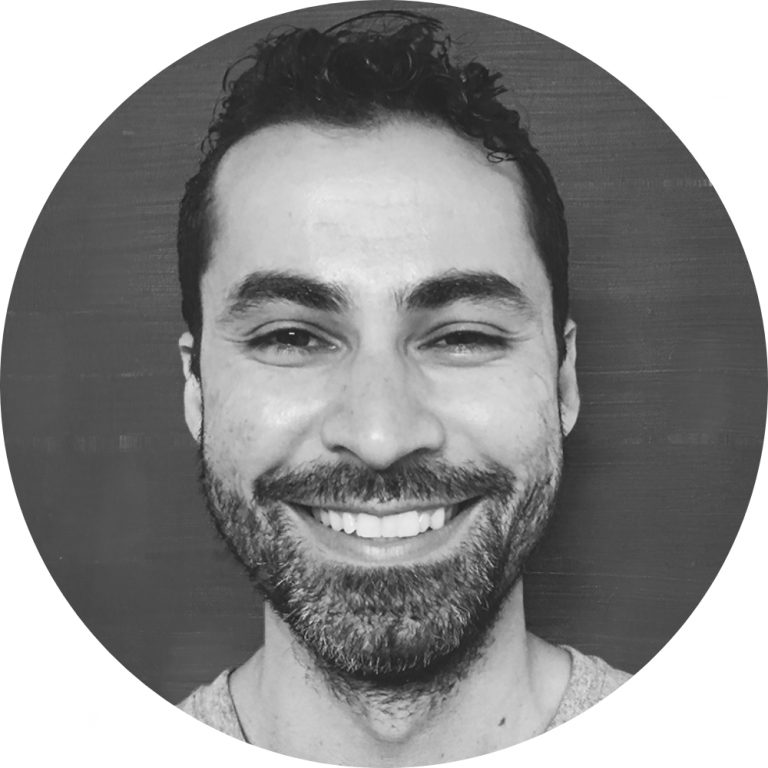
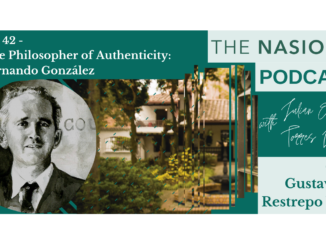
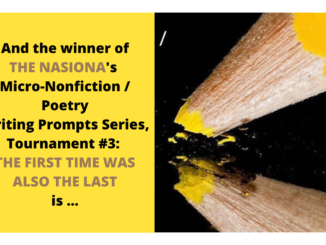
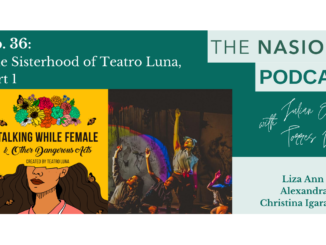
1 Trackback / Pingback
Comments are closed.